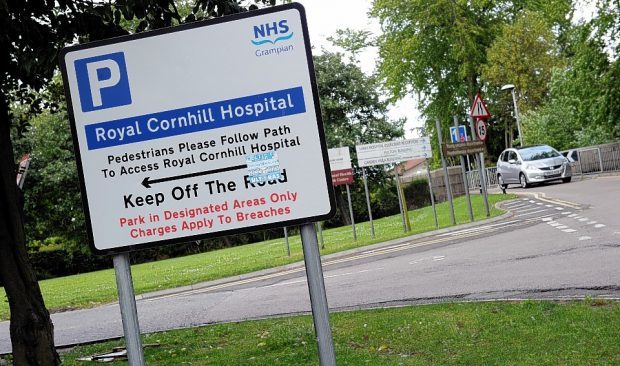An Aberdeen hospital has been criticised for poor record-keeping which could have led to psychiatric patients receiving drugs that were not authorised in consent forms.
Inspectors from the Mental Welfare Commission for Scotland yesterday published a report outlining areas where improvement is required at Cornhill Hospital.
They found that paperwork for one patient had remained unchanged despite his condition improving.
The man had been prescribed to receive injections of anti-psychotic drugs into his muscles, when required, to calm him down.
That treatment is usually reserved for people detained in the hospital and is administered without consent, but the man’s records had not been changed to show when his situation had changed to being there voluntarily.
The report noted that the procedure had not been carried out since the patient had become classed as “informal”, but inspectors said their finding showed that a more “robust” system was required. Another patient had been prescribed an anti-depressant which had not been authorised on consent to treatment forms.
And another had been prescribed two forms of anti-anxiety medication to be given orally, when only one was officially consented to.
Inspectors highlighted their concerns over the situation at the time, and ordered that the issues be “immediately remedied”.
The report said: “Managers should implement a robust system for review of consent to treatment forms to ensure that prescriptions comply with the legal requirements of the Mental Health Act.”
Last night, NHS Grampian insisted that patients “at no time” received medication they should not have.
A spokeswoman said: “There is minimal risk to patients in this situation.
“The Mental Welfare Commission pay particular attention to the proper completion of paperwork for those patients detained under the Mental Health Act.
“We audit our own performance and have shown improvement in this area year on year.
“The circumstances described in the report were isolated incidents and were resolved as soon as they were brought to our attention.”
The commission representatives examined the hospital’s 16-bed Fraser Ward on an announced basis in May, and an unannounced visit to the 12-bed Dunnottar ward in June.
During a visit in 2013, inspectors flagged concerns about the safety of patients in the mixed-sex Fraser Ward.
They said those worries have now been addressed by the creation of a single sex sitting area in the ward.
